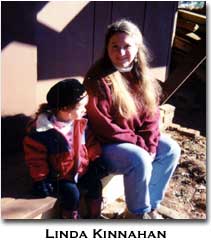 Introduction:
Introduction:
Innovative Writing, Public Discourse, and Social Action
Linda A. Kinnahan
The papers collected in this section were written and/or presented in conjunction with the Modernist Studies Association Conference, held in Houston in October, 2001. As timing would have it, the papers all were heard or read or discussed with the events of September 11 very present in everyone’s minds and hearts. This special section of In-Conference arose out of the experience of writing, hearing, discussing, and reading papers on poetics not only against the backdrop of the traumatically violent events of September 11 but also in relation to the myriad forms of public discourse in America framing these events.
At that conference, a group of HOW2 board members met to share ideas about the possible space that HOW2 could provide in responding to September 11. Out of this meeting, it seemed clear that the section devoted to In-Conference could make rich use of the reflections and analyses generated at the MSA conference, particularly in its attenuated commitment to raising questions of poetry’s relation to public, social action with a new urgency. The “Poetry Post-9-11: Witnessing Dissent” section of this issue, edited by Elisabeth Frost, represents one set of reflections that directly engage questions of poetry’s efficacy and relevance following September 11. This “Innovative Writing, Public Discourse, and Social Action” section comes at these questions also, but through critical lenses turned to the cultural work performed through linguistic and formal means of work by twentieth-century poets within specific social contexts and/or in relation to particular forms of public discourse. Variously, these papers take up questions exploring the relation of poetic innovation to social action and to public spheres, involving us with the very vexed question of how we identify and judge the “innovative,” across and within global cultures and historical moments.
Arguing that “a poetics of difficulty opens the thinking differently which also constitutes a politics of difficulty,” Dee Morris’ essay on Leslie Scalapino and Ezra Pound claims that such a poetics is essential “in a time of atrocity.” Her emphasis upon these poets’ works as unsettling a simplistic discourse of politics, mass media, etc. evolves into a political call for poetry that asks the reader not only to think but to “think about how she is thinking.” Attentive to the interaction between how we designate “difficult” within a set of western assumptions about voice, form, and poetic function, Morris’ essay leads to the linked essays of Anita Helle and Mary DeShazer, which ask us to retheorize reading practices in relation to “locational” constructions (of gender, race, nationality, modernity) that provide, as Helle puts it, “different axes” for reading linguistic experimentation. Both Helle and DeShazer urge a consciousness of reading practices capable of crossing national boundaries, of fostering local and global cross-cultural encounters. Enacting a possible model, DeShazer’s discussion of black South African women’s manifestoes, political poetry, and orature enacts a reading “through diasporic consciousness” of writing practices contingent upon their cultural function, time, and location in performing “innovatively.” Cynthia Hogue, focusing on Marianne Moore, Alice Fulton, and Alicia Ostriker, examines poetry “on the verge or at the edge,” an edge she defines as a synergistic meeting of aesthetics and ethics. Reexamining the “demands of accessibility” and the notion of poetic witness, Hogue’s reading of these three divergent feminist poets looks to the ethical implications of formal innovation and to the ethics of reading the “innovative” as a mode of emotional compassion—a “feeling with” that opens dialogue and dissolves boundaries of ego at the level of subjective agency where change, through poetry, is possible, and extendable to public action.
I am grateful to Dee, Anita, Mary, and Cynthia for these thoughtful essays and to their rich, diverse analyses of social action, public discourse, and innovative poetics.
Bio: Linda A. Kinnahan teaches at Duquesne University and is the author of Poetics of the Feminine: Literary Tradition and Authority in William Carlos Williams, Mina Loy, Denise Levertov, and Kathleen Fraser. She has published articles on British and American women poets such as Carol Ann Duffy, Barbara Guest, Denise Riley, Wendy Mulford, and Geraldine Monk. She is currently working on a book investigating feminist reading practices in relation to contemporary women’s poetry, and another focusing on modernist women in relation to economics.
 |
 |
 |
 |
 |
 |